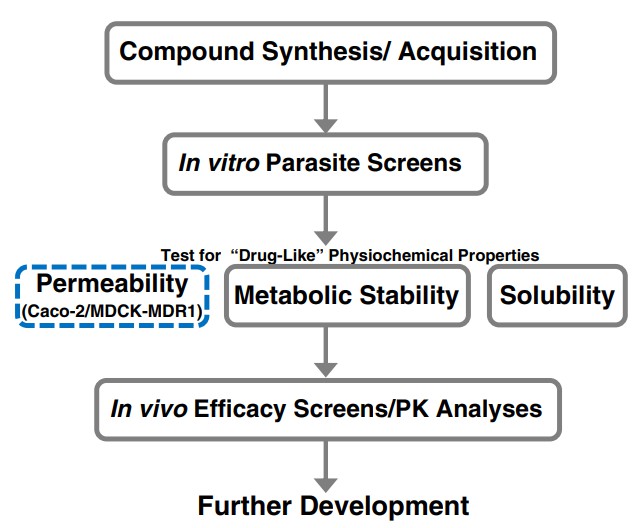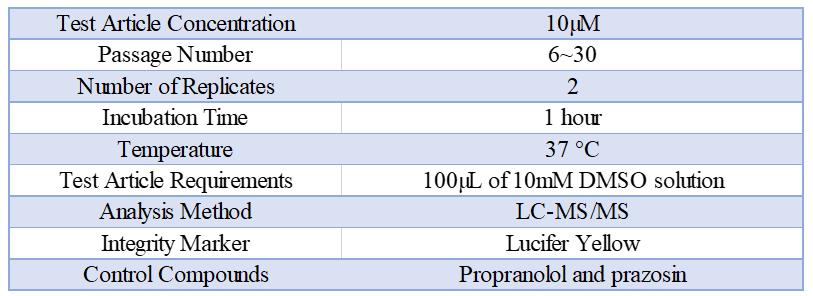The intestinal absorption of oral drug products is one of the factors that determine their efficacy, toxicity, and pharmacokinetics. Prediction of intestinal absorption is an especially critical step in the early drug development process, which can greatly speed up the screening of potential compounds. A method for predicting drug permeability is developed based on cell culture, using a cell monolayer in the dual-chamber diffusion system to simulate the process of drugs from the intestinal lumen into the blood.
Among them, the Caco-2 model and the MDR1-MDCK model are widely used. MDCK cells are an epithelial cell line derived from canine kidney origin. They have the characteristics of rapid proliferation and differentiation, and their transporter protein expression and metabolic activity are low. At present, MDR1-MDCK permeability assay is one of the commonly used methods for drug absorption screening. MDCK-MDR1 cells were derived from transfection of MDCK cells with the MDR1 gene (ABCB1), which encodes the efflux protein P-glycoprotein (P-gp). The system can measure transport in both directions across the cell monolayer (apical to basolateral (A-B) and basolateral to apical (B-A)) and determine efflux ratio, thereby assessing whether a compound undergoes active efflux. MDCK-MDR1 permeability has become an effective predictor of both intestinal permeability and blood-brain barrier permeability, which is helpful for the study of drug efflux and drug permeability.
 Figure 1. Implementation of cell-based permeability studies in anti-malarial drug development/screening (Jin, X.N.; et al. 2014.)
Figure 1. Implementation of cell-based permeability studies in anti-malarial drug development/screening (Jin, X.N.; et al. 2014.)
As an experienced service provider in molecular discovery and research, Profacgen offers high-quality MDR1-MDCK permeability assay to simulate the process of drug from the intestinal lumen into the blood. Similar to the Caco-2 assay, our MDR1-MDCK permeation system uses a monolayer of MDCK cells as the filter membrane, and the cells are seeded on 24- or 96-well plates to form a confluent monolayer, compound transport across the monolayer is monitored over a 60-min period to determine penetration efficiency of compounds from apical to basolateral or basolateral to apical. Compounds are quantified by LC-MS/MS analysis based on peak area.

Profacgen has accumulated lots of experience in PROATCs. Our professional technical team can provide customers with high-quality MDR1-MDCK permeability assay and many related featured services. Our competitive prices and extensive expertise have earned us the trust of our collaborators. Contact us to find out how Profacgen could be of assistance.
Reference
Fill out this form and one of our experts will respond to you within one business day.